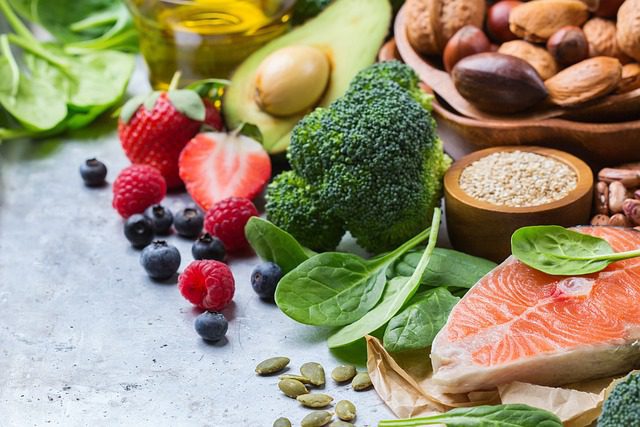Substance addiction recovery is not just about abstaining from drugs or alcohol but also about providing your body and mind with the tools necessary to restore balance. Food is one of these tools. How does food impact your recovery from drug and alcohol addiction? The nutrients you put into your body play a big role in how you recover.
How Good Nutrition Impacts the Body in Addiction Recovery
As you begin on the path of drug and alcohol addiction recovery, you’ll likely notice significant changes in your body. Substance use impacts your metabolism, for example–the way your body turns the food you eat into nutrition. It can also impact how your organs function, including your heart, lungs, kidneys, liver, and brain. As noted by the MedicinePlus, substance use can impact your body in various ways:
- Opioids often impact the gastrointestinal system, causing constipation. When you start in recovery, you may notice nausea, vomiting, and diarrhea.
- Alcohol creates a significant nutritional deficiency, especially a lack of B vitamins, which can lead to anemia and neurological problems. It impacts metabolism, especially in the liver and pancreas, causing an imbalance of fluids.
- Stimulants like meth and cocaine lead to poor nutrition, which can mean electrolyte imbalances that impact the brain and heart. Many suffer memory problems and may lose substantial weight.
These are just some examples. Any type of toxin that you put into your body impacts its ability to function properly, leading to complications. Yet, in just a few weeks of addiction treatment, you’ll see noted improvements.
How to Use Good Nutrition in Addiction Recovery
By flipping the situation around and supplying the body with a high level of nutrients, it’s possible to support your body’s efforts to heal naturally. You don’t have to go on a strict diet for addiction recovery – but you do need to change up the way you look at food to ensure there’s an opportunity to begin the healing process. Here’s how to do that.
Improve Vitamin Intake in Addiction Recovery
Your body needs 13 essential vitamins to remain healthy, and the best source of them is from the food you eat. When you consume enough vitamins (and that means a wide range of them), you’ll notice changes in your body, including:
- Calcium absorption, improving bone health
- Immune system function – you’ll feel better
- Improved skin and hair health
- Brain and nervous system support
- Better metabolization of protein to support body health
Minerals in Addiction Recovery
Minerals like calcium and magnesium work to support your body’s organ function. Getting enough of these nutrients supports blood circulation and heart function. Calcium and magnesium also help support healing from tooth decay. Phosphorus, potassium, sodium, and sulfur are other minerals that your body needs.
You’ll notice significant life changes from addiction recovery by just improving nutrition.
Nutrition in Addiction Recovery
Your body also needs protein, fat, and fatty acids. It needs carbohydrates to fuel the recovery process. It also needs adequate hydration from water.
The following are some of the most valuable changes to your diet you can make to create a better, long-term recovery:
- Carbs: Improve carbohydrate intake to focus heavily on whole grains. These are the body’s main source of energy. They also support the neurotransmitter function, which can help to reduce cravings and improve your mood. Consider whole grains in breads, pasta, and rice.
- Amino Acids: Give your body more of the amino acids it needs, which can also help to support the neurotransmitters in your brain, helping to ease cravings and reduce aggression. Aim to eat more beef, poultry, eggs, dairy, and fish to boost those levels.
- Dietary Fat: Your body needs healthy sources of natural fat from nuts and healthy oils like olive oil. Dietary fat helps to encourage neuroplasticity, a way of helping to reduce inflammation in your brain and boost cell membrane health.
- Omegas: Both omega-3 and omega-6 fatty acids are essential for the health of the body during recovery. Omega-3s can increase neurotransmitter uptake and reduce inflammation, while omega-6s can help with improving the activity and function of the brain. Get these in fish oil and healthy fats.
Simple Rules for Nutrition in Addiction Recovery
It is often best to work with a dietitian who can help structure a nutrient-rich diet for you that encourages health and healing. Yet, there are a few simple rules you can follow that could make a substantial difference in your healing process.
- Eat whole foods. Skip anything that’s in a box and instead buy fresh fruits and vegetables.
- Switch to whole grains. Everything you eat that’s a grain should be whole grain, such as whole grain breads and pasta.
- Enjoy healthy snacks like nuts and seeds. These pack in some protein while also providing you with an important source of fat.
- Go with lean proteins. Enjoy all of the protein you need from meats, soy, and other sources, but try to choose leaner cuts.
- Hydrate your body. Water is a must. Reduce or eliminate the intake of sugary substances.
Let Our Team Guide You
When you enroll in drug and alcohol addiction treatment in Lubbock, Texas, with The Ranch at Dove Tree, you get dietary support from the start. Contact us now to learn how we can help you.







